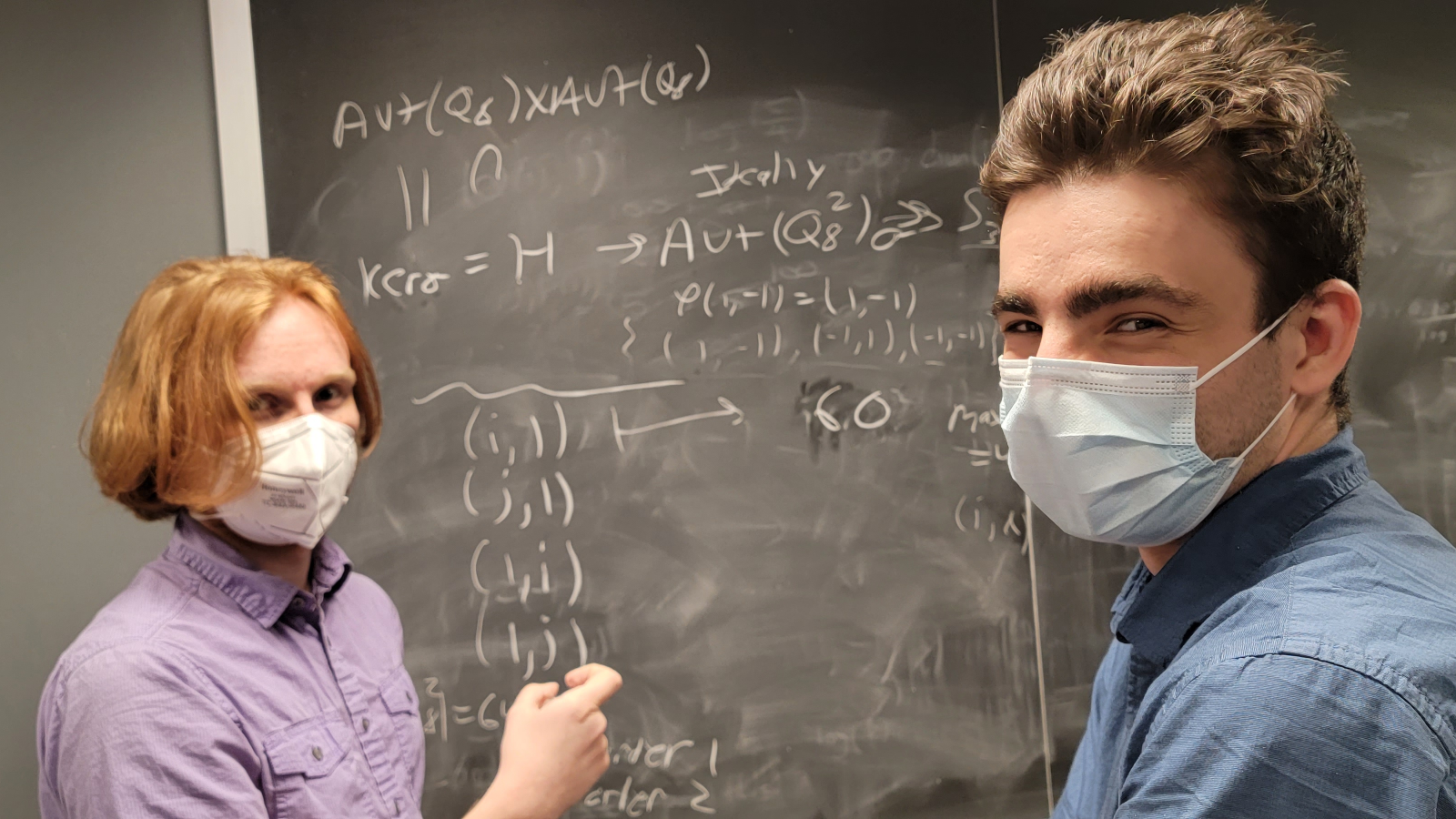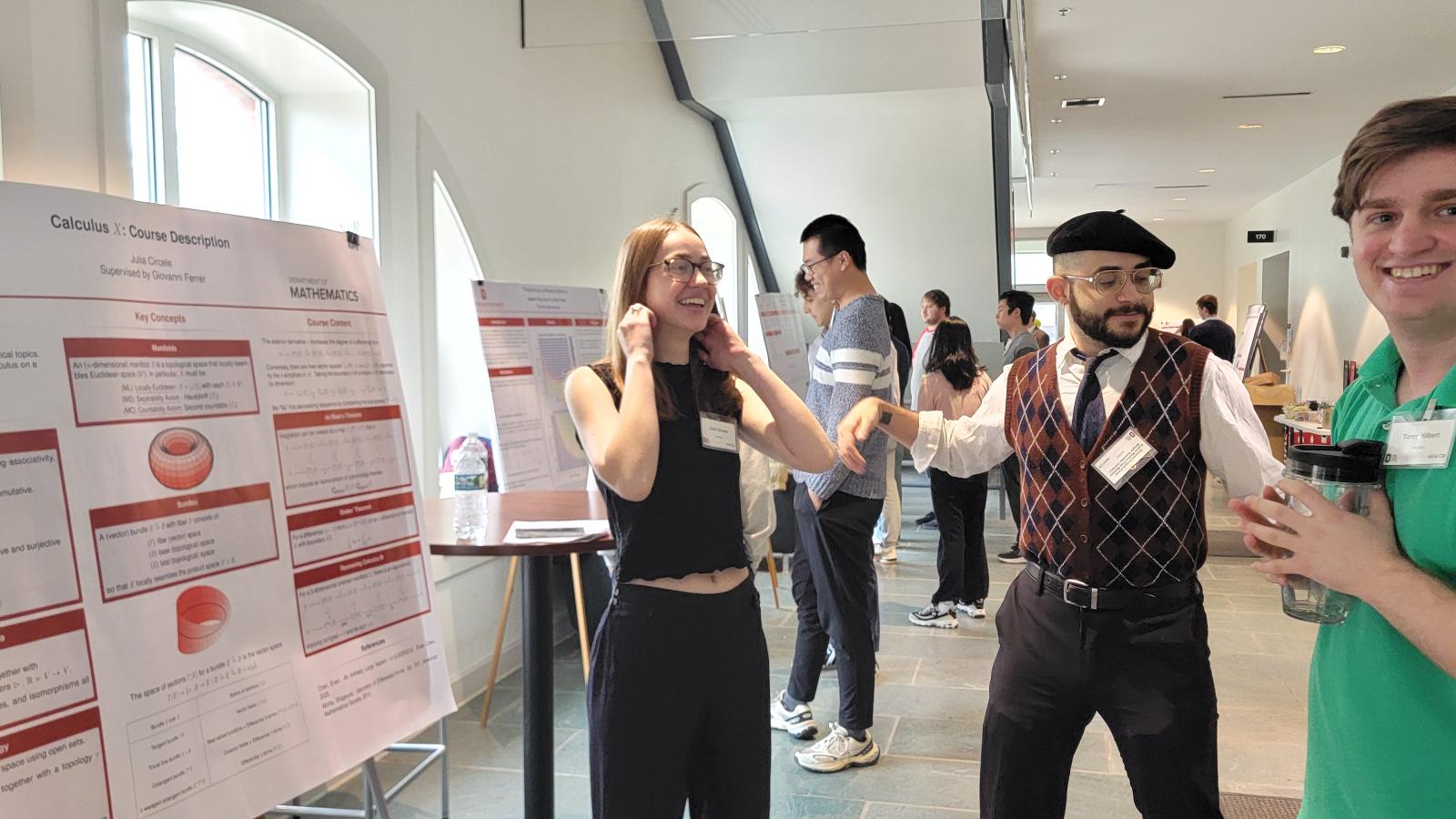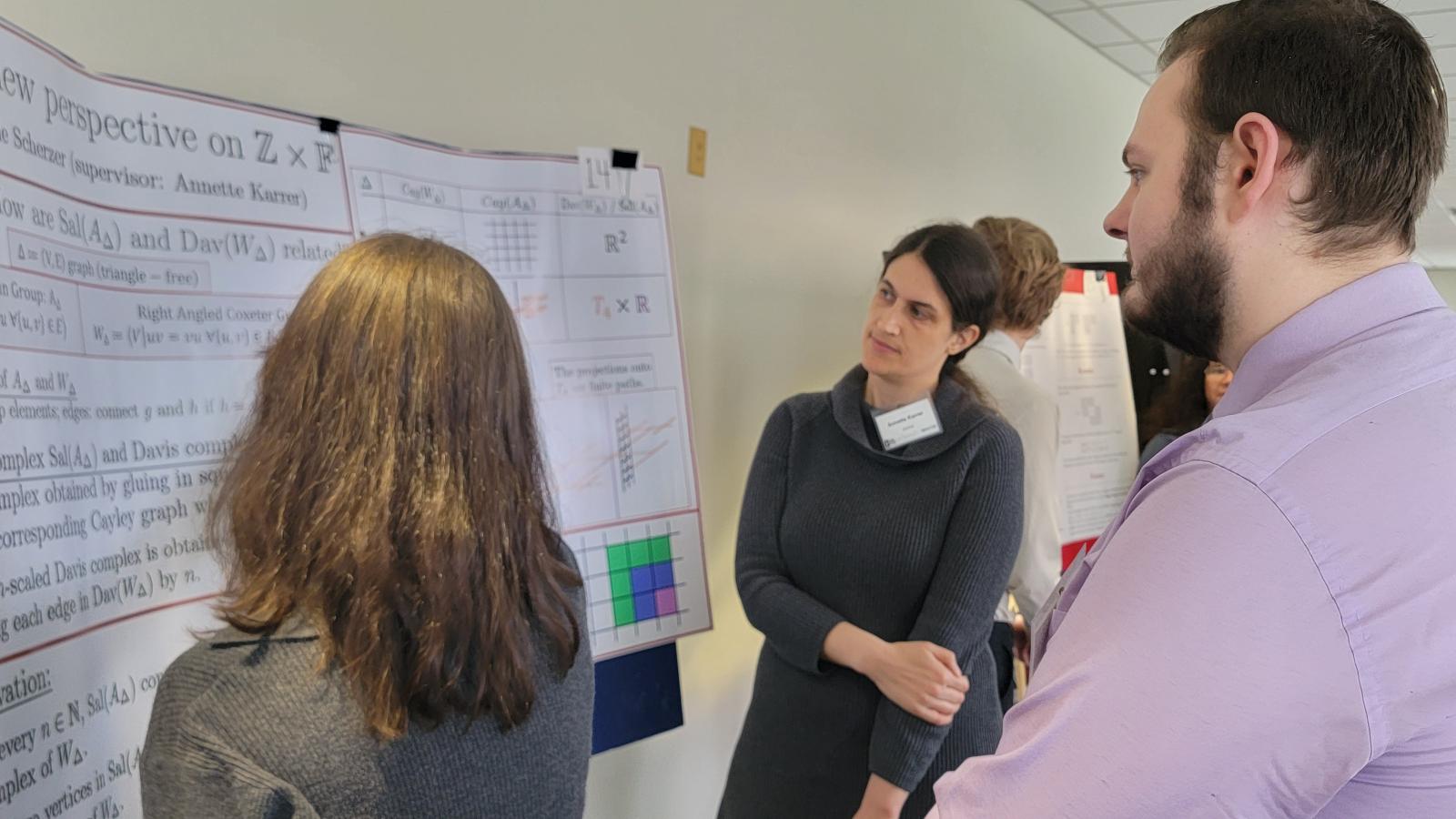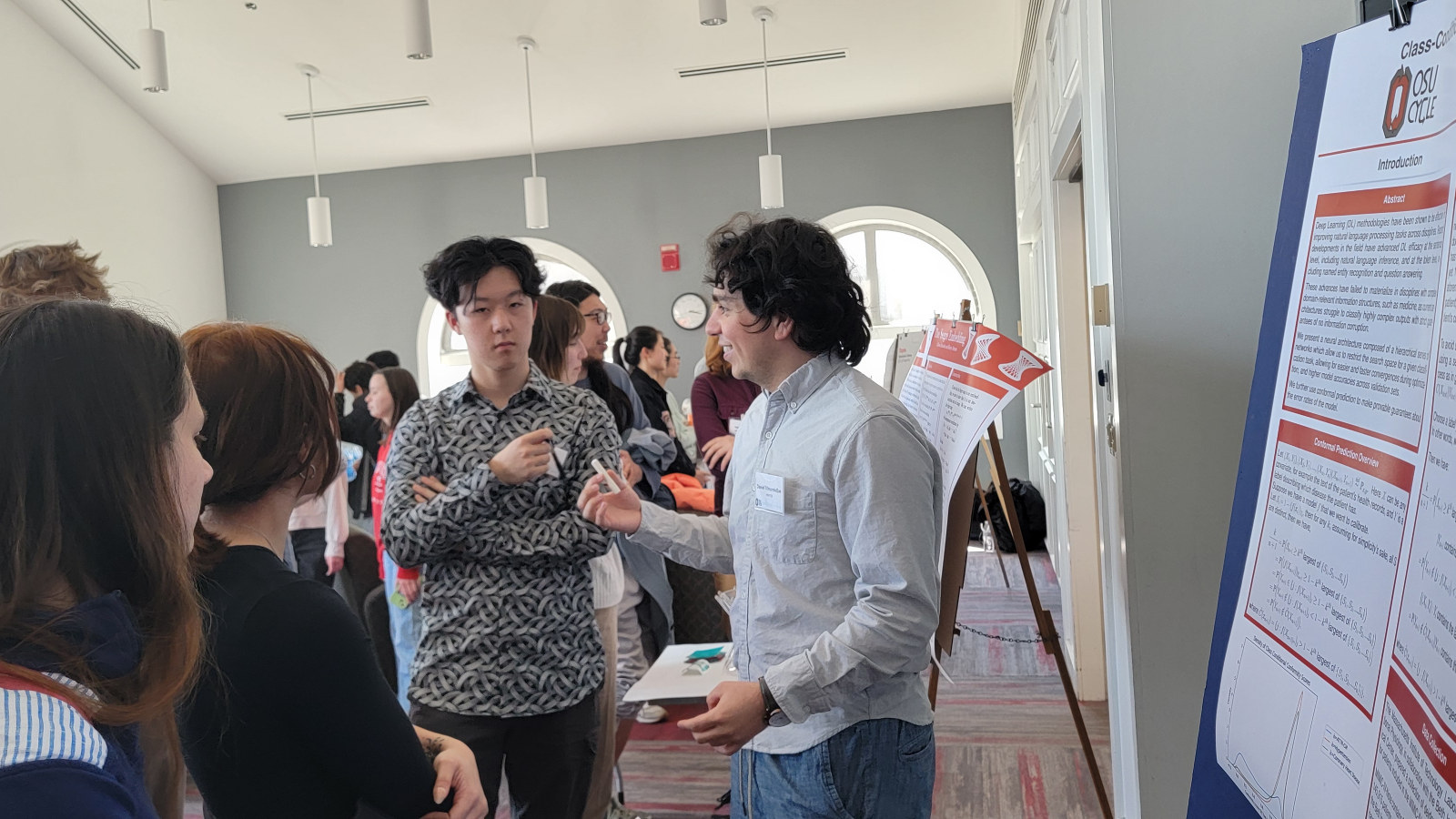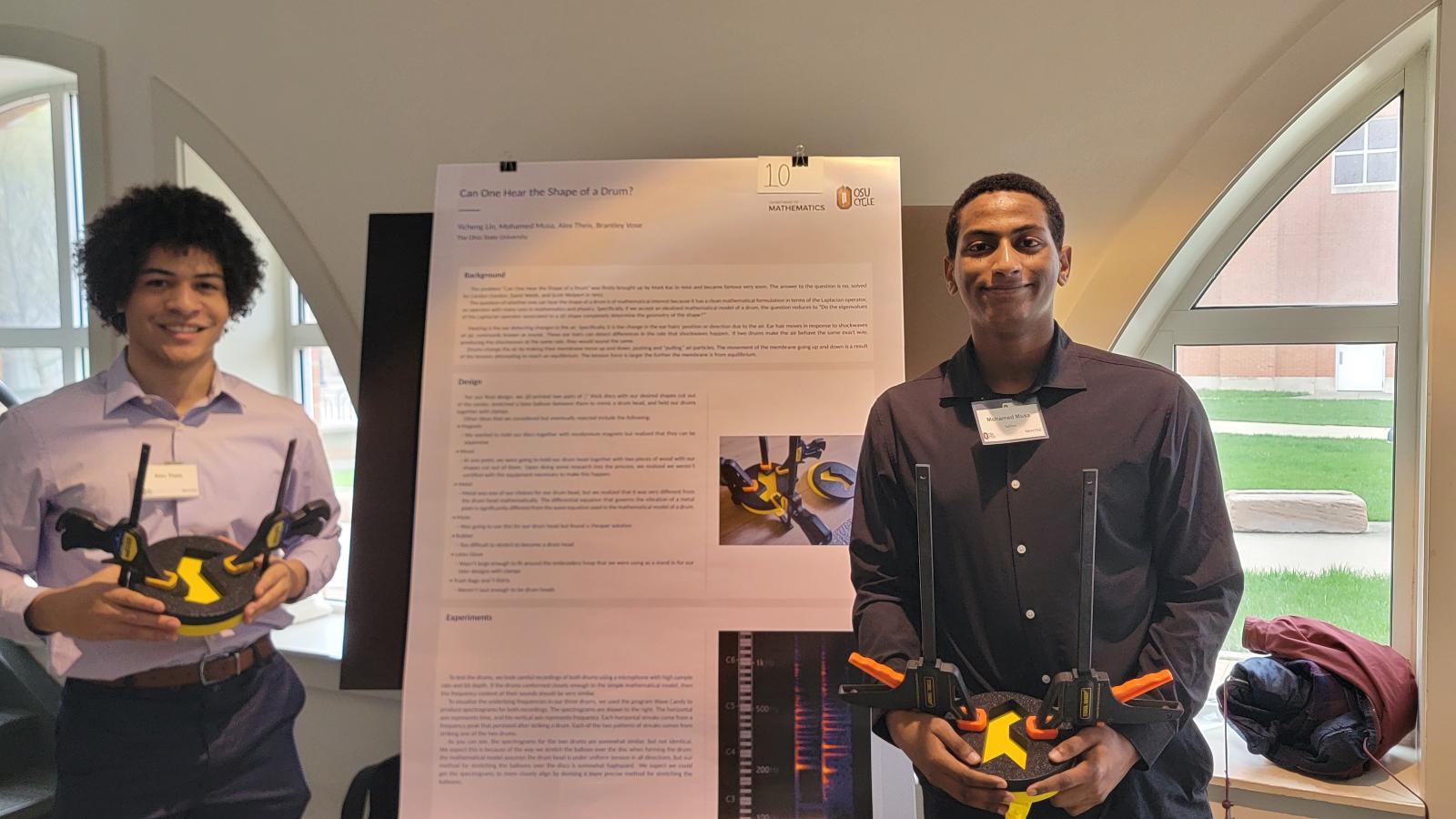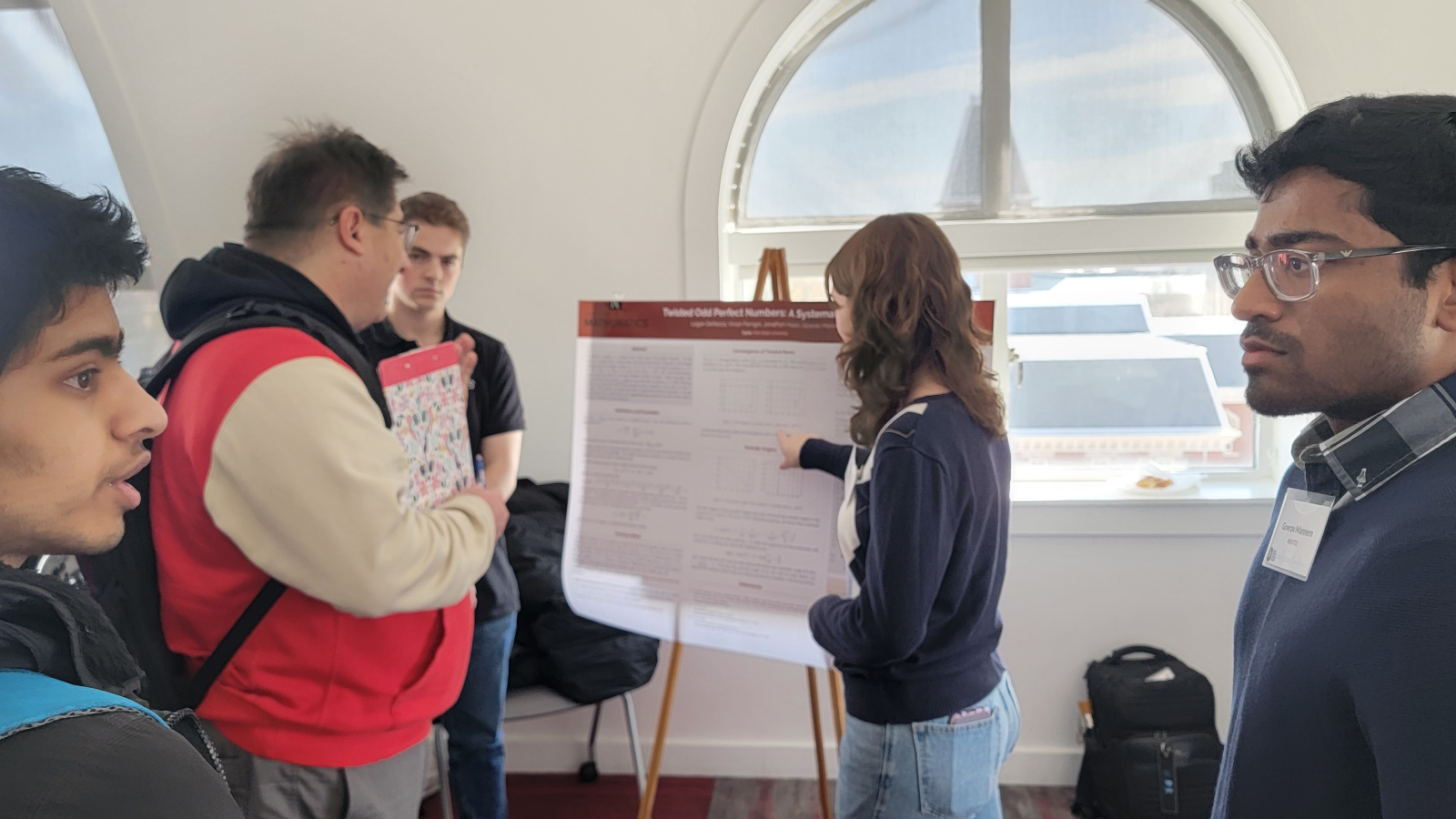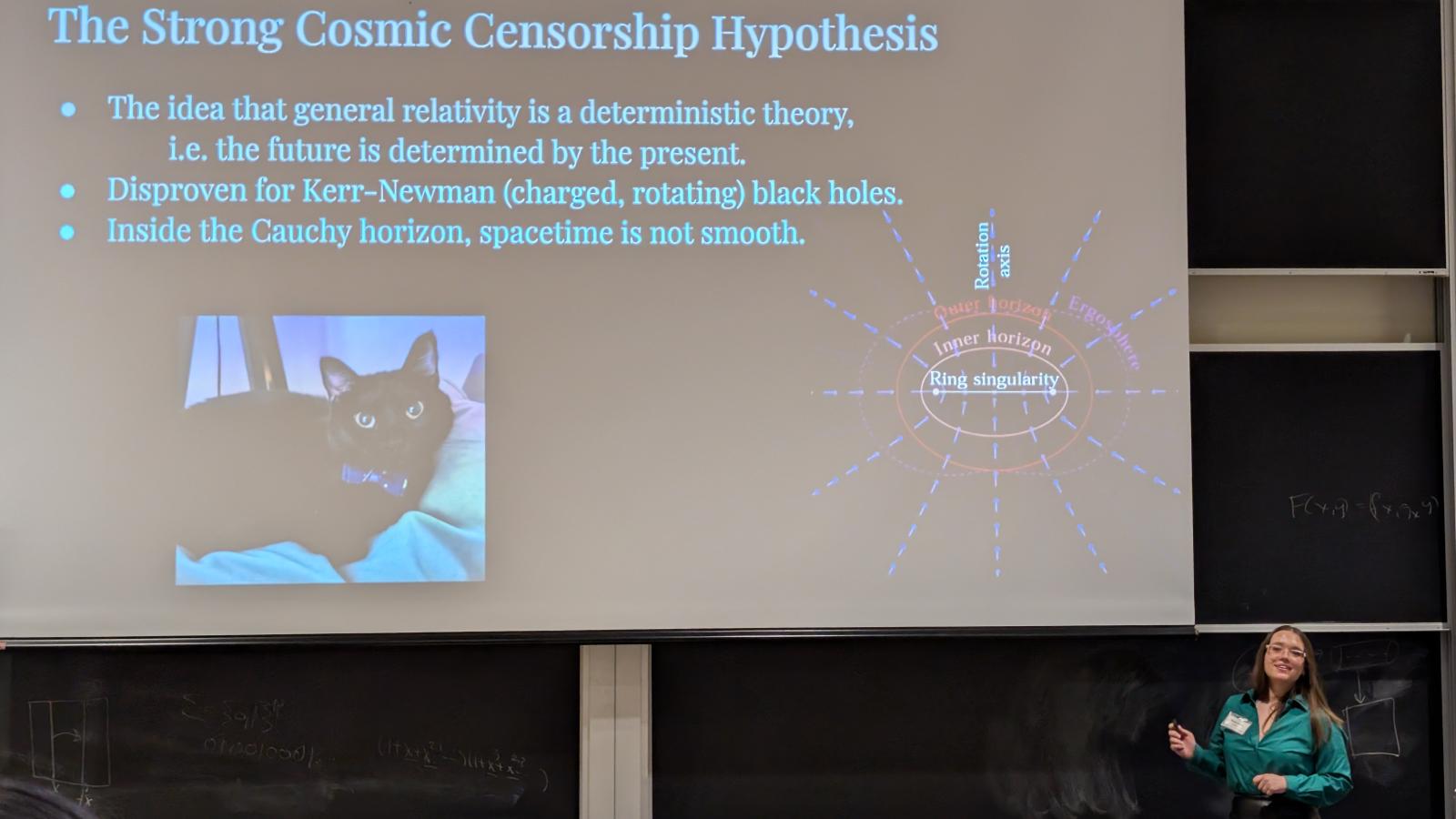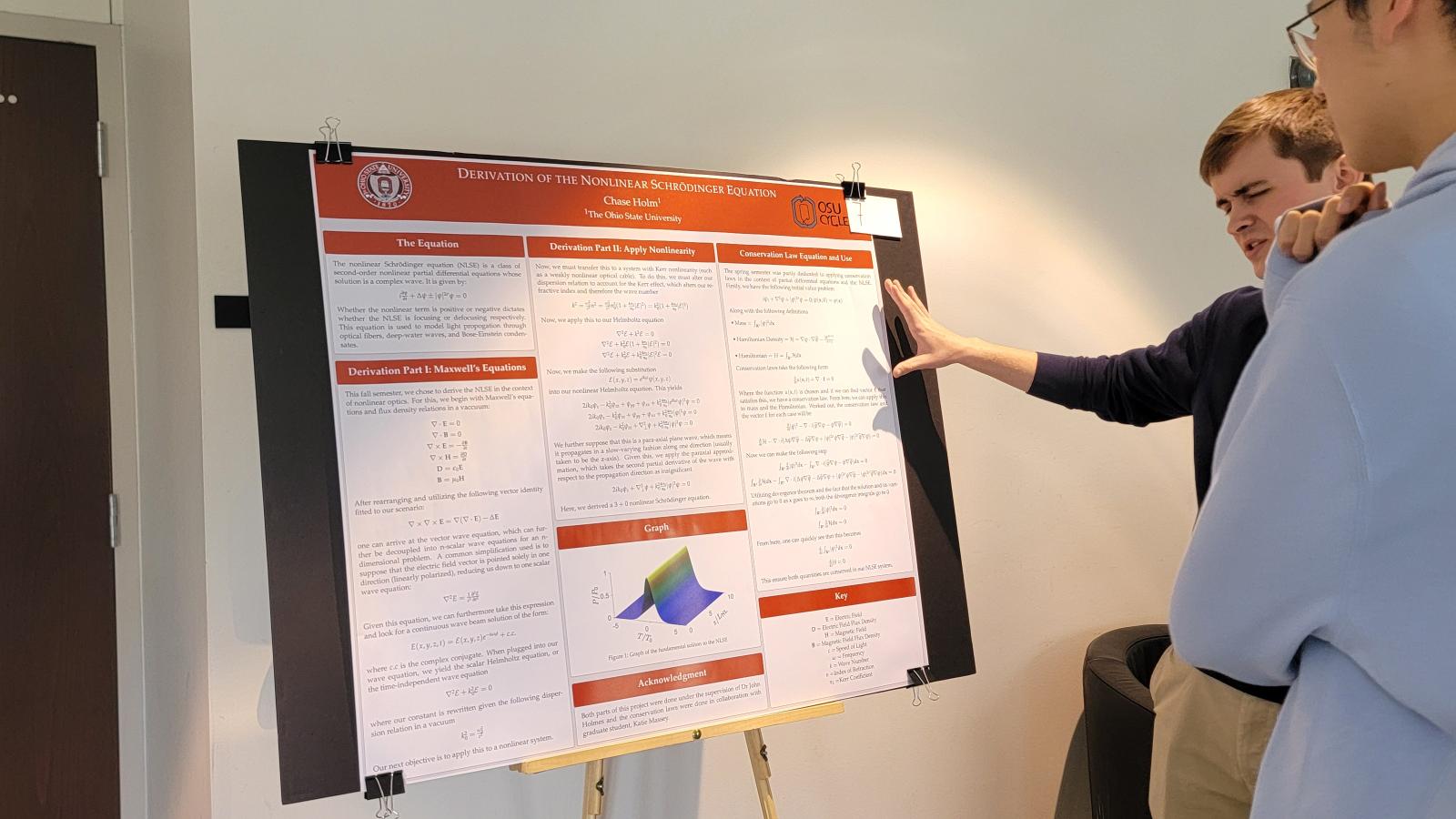Cycle

Mission Statement
Cycle (MATH 1193) is a community and course of students and faculty in the Department of Mathematics at The Ohio State University dedicated to fostering a more welcoming and supportive undergraduate experience. We are a largely student-run organization developed in collaboration between faculty, graduate students, and undergraduate students. Our focus lies in undergraduate student engagement in mathematics research, particularly for students who are starting off on their research journey. Students work closely with mentors on mathematics research.
Our Goals
Cycle strives to provide discipline-specific mentoring for our underrepresented undergraduate mathematics majors that:
- supports the transition to active research,
- fosters a community of students, both undergraduate and graduate, within the department, and
- offers professional development opportunities to students.
The Cycle Mentoring Class
Undergraduate student participants may elect to enroll in a one credit hour course offered in both the Autumn and Spring semesters to get credit for their participation, but enrollment is not required for participation in the Cycle program.
The Cycle Conference
Each spring, Cycle hosts a one-day conference for participants to showcase the projects that they have spent the year working on. The next conference is tentatively scheduled for April 18, 2026. Attendance at the conference is mandatory for participation in Cycle.
Sign up to attend the next Cycle Conference here.
Join Us
Cycle pairs mentors and mentees after participants rank their preferred project choices at the research fair. The next Cycle research fair will take place September 1, 2026.
Contact Us
Contact the Cycle Committee at mathcycle@osu.edu with any questions, comments, or suggestions.
The Cycle Committee
Cycle was first proposed to the DDCC and the Undergraduate Studies Committee of the Department of Mathematics in the Spring of 2021.
Cycle is currently organized by:
Kacey Aurum (chair)
Kabir Belgikar
Torey Hilbert (vice chair)
William (Will) Newman (treasurer)
Daniel Tcheurekdjian
Frequently Asked Questions
Absolutely none!
Cycle mentors offer projects at all levels from learning the basics of a field to doing active research. Prerequisites will vary from project to project, but there is always something for everyone. Only a passion for mathematics is needed!
The expected time commitment for Cycle is a minimum of one hour a week for both mentors and mentees. This hour is typically spent in the regular Cycle session (Tuesdays 5:20-6:15). Snacks (usually) provided!
Some groups will elect to meet more often; particularly groups whose stated goal is to produce novel research and produce a publication will involve a larger time commitment. It is ultimately up to the discretion of the mentor how much time is expected to be put into the project within reason, usually no more than three hours per week.
First, you will need to register for the research fair! Then, you will attend the research fair where you will submit your preferences for what project you would like to join. You should receive the information of which project you were paired with within the week. After that, you will work with your mentor to come up with a timeline for your individual project.
Attendance at the research fair is arguably the most important factor in finding a good project as this will be your opportunity to meet with the mentors and find a good fit. If you have a prior engagement, we strongly encourage you to try to attend at least a part of the fair.
If your absence is unavoidable, you must communicate this before the fair. We will send you a list of the projects, and you will need to submit your preferences that way, again before the fair. We pair students with projects immediately following the fair, so if we do not receive your preferences by then, we may assume that you are no longer interested in participating and/or you may receive a less favorable pairing as the projects get taken by others.
Many Cycle projects are conducted asynchronously, meaning that the groups meet outside of the typical Cycle schedule (Tuesday 5:20-6:15). These projects still hold the same requirements as synchronous projects with the added benefit of schedule flexibility.
Note that asynchronous projects are also presented at the research fair, so you should still try to attend the research fair if you are able. See that question in the FAQ for further explanation.
If you cannot commit to the full length of a Cycle project, this needs to be communicated to the Cycle committee and any prospective mentors ASAP before pairing takes place. We are happy to accommodate students in whatever way we can, but we do not want our mentors unexpectedly left without a project, and your mentor cannot restructure the project timeline if they are not aware from the beginning.
If you need to drop the project before it is completed once you have already started, you should again tell your mentor and the Cycle committee as soon as you can. If the need to drop is due to workload issues, we can also work with you and your mentor to restructure the project to fit more with your schedule and goals.
Just about any project that is math-related is acceptable! Available projects vary from year to year and depend on the mentors' interests.
Typically, we have reading projects (very similar to DRP), learning projects, coding projects, art projects, and novel research projects. Reach out early if you are looking for a specific project, and we will try to find a mentor who is interested!
There are a number of unique benefits to each program.
Cycle projects are generally classified as reading, learning, art, coding, or novel research, DRP focuses only on reading projects (i.e. working through a text).
Cycle groups have the option to meet synchronously with the rest of the groups (food usually provided) or asynchronously, while DRP mentoring is all asynchronous.
Cycle mentees are able to receive one credit hour for participation in the program, and Cycle includes additional material focused on community and professional development (e.g. a CV workshop, tea times, and an interview assignment).
Cycle mentoring groups are paired using a stable marriage algorithm after mentors and mentees meet, while DRP pairs based on topic interest.
Cycle projects are year-long and culminate in a one-day conference in the spring where mentees make posters and mentors can give talks; DRP projects last one semester and culminate in a presentation session.
We are always happy to help mentors design projects, and you don't need to have the project idea fleshed out right away! Occasionally, mentees will have their own project ideas in mind as well.
Absolutely none! If you are wanting to mentor but find it too daunting to organize a research projects, we encourage you to consider mentoring a reading, learning, or art project. Check out Calculus X: Course Description (2025) and Seifert Surfaces of Knots (2025) for examples of past beginner-friendly projects!
Absolutely! We have had many mentors involved in the program during their qual courses. Generally, we recommend choosing a less intensive project if you are interested but nervous about the demands of the project.
We have had a number of successful undergraduate Cycle mentors in the past! Generally, we only allow previous Cycle mentees to serve as undergraduate mentors, but exceptions are possible.
Postdocs and faculty are also encouraged to mentor for Cycle!
In addition to the satisfaction of being a good mentor, there are a number of professional reasons to participate in Cycle.
Cycle offers a number of opportunities for desirable career experiences in addition to the valuable leadership experience that comes from participation, such as speaking at the Cycle Conference; networking with other graduate students, postdocs, and faculty; and any potential publications from novel research projects.
Additionally, we on the Cycle Committee are always happy to write letters of recommendation for our mentors for awards and applications, and mentees typically are willing to do so as well.
We are extremely grateful to all those who volunteer their time for the benefit of the math community!
Past Projects
Have a look at some of the past posters from Cycle! Please keep in mind that these posters represent a year's worth of work, so it is not expected that students understand all of the content!

